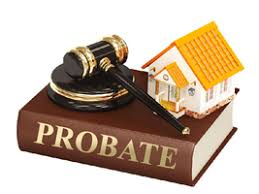 When an elderly or disabled family member becomes incapacitated, it is often important for someone else to step in and take on the responsibility. While Power of Attorney forms can be used for these purposes, in some cases, a legal guardianship may be necessary. If you have questions about a guardianship, it is important to seek the advice of an experienced Chicago Guardianship Attorney in IL.
When an elderly or disabled family member becomes incapacitated, it is often important for someone else to step in and take on the responsibility. While Power of Attorney forms can be used for these purposes, in some cases, a legal guardianship may be necessary. If you have questions about a guardianship, it is important to seek the advice of an experienced Chicago Guardianship Attorney in IL.
The legal process for becoming a guardian of an adult is initiated by filing a petition with the court that includes basic personal information and a report on the person whose condition you are seeking to become a guardian for. The court may also appoint a guardian ad litem or other special investigator to examine the individual and prepare a report to be presented at the hearing. The respondent, who is the individual for whom you are seeking guardianship, must be personally served with summons and a copy of the petition. The hearing will usually be held within 30 days after the service. A lawyer should be retained to file the petition and provide representation at the hearing, especially if the case is contested.
Our firm has extensive experience in representing individuals requiring or wishing to obtain a guardianship of a minor or an adult. We frequently handle a variety of these cases, including situations in which the parents are deceased or unable to care for their children due to incarceration, drug addiction, physical disabilities or mental illness. Our attorneys can assist you with preparing the appropriate documents and submitting them to the court, in addition to advising on your best course of action for guardianship.
Guardianship of a child is normally granted to one of the biological parents or to a close relative, such as a sibling or aunt or uncle. In cases where a parent is not capable of providing care for their child, or where the parents do not agree on how they want their child to be raised, a legal guardianship is possible. It is often wise for parents to consider this in advance of the child reaching adulthood.
Guardians of adults are typically limited in scope and duration to ensure the ward is not taken advantage of, for example, when it comes to making financial decisions. In some instances, a guardian’s authority may be revoked if they have committed certain crimes or are not able to meet their basic needs.
A legal guardianship can help a family member or friend manage the day-to-day responsibilities of an individual and make healthcare or financial decisions on their behalf. In the event that an individual is unable to make their own decisions, they can be declared incompetent by a judge in a guardianship proceeding. Our firm can advise you on alternative methods for taking care of your loved ones, such as establishing a special needs trust in which they can receive adequate funds to ensure a high quality of life without putting medical and other benefits at risk.
 liable for the actions of the agent or his estate. This is not the case in all jurisdictions however and is a question that must be considered on a case by case basis.
liable for the actions of the agent or his estate. This is not the case in all jurisdictions however and is a question that must be considered on a case by case basis. Many people think that if you are in a domestic relationship, that you are not protected by the law. However, every person in a marriage is entitled to certain legal protections under the law. This includes all members of the wedding party, even the husband or wife. Unfortunately, not everyone knows how to go about using their rights under the law, and this can lead to serious consequences. If you have been accused of domestic violence, you should contact a Seattle domestic violence attorney as soon as possible.
Many people think that if you are in a domestic relationship, that you are not protected by the law. However, every person in a marriage is entitled to certain legal protections under the law. This includes all members of the wedding party, even the husband or wife. Unfortunately, not everyone knows how to go about using their rights under the law, and this can lead to serious consequences. If you have been accused of domestic violence, you should contact a Seattle domestic violence attorney as soon as possible.